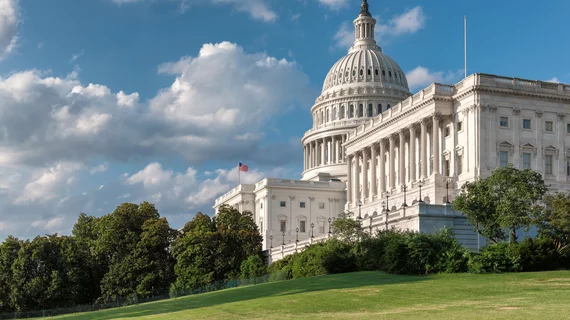Lawmakers to introduce bill to lower drug prices
Senator Bernie Sanders (I-Vt.) and U.S. Representative Ro Khanna (D-Calif.) are planning to introduce a bill that aims to “drastically” lower prescription drug prices. The pair plan to introduce the bill, The Prescription Drug Price Relief Act, when Congress is back in session.
The bill would allow the federal government to require the approval of cheaper generic versions of drugs if pharmaceutical makers refuse to lower drug prices to the median price in five countries––Canada, the United Kingdom, France, Germany and Japan––regardless of patents or marketing exclusivities in place.
“No other country allows pharmaceutical companies to charge any price they want for any reason they want," Sen. Sanders said in a statement. "Somebody in America today can walk into a pharmacy and find out that the medicine they have been using for years can double, triple or quadruple literally overnight. That needs to change. The greed of the prescription drug industry is literally killing Americans and it has got to stop.”
The median price of brand name prescription drugs could drop about 43 percent if the bill becomes law.
The legislation focuses on prices that other nations pay for prescription drug prices, which are significantly lower than costs in the United States. Last year, the U.S. pharmaceutical industry made $453 billion, more than twice as much as all European countries combined, according to a summary from Sanders’ office. The top five drugmakers make more than $50 billion while the top five pharma CEOs made more than $113 million in compensation.
“There is absolutely no reason for the big pharmaceutical companies to make Americans pay higher prescription drug prices than they charge our friends in Canada, Germany, and the U.K. Today we’re sending big pharma a message: market exclusivity is a privilege, and when you abuse that by price gouging the sick and aging, then you lose that privilege,” Rep. Khanna said in a statement. “This bill will bring down drug prices by taking on monopolies and boosting prescription drug competition."
The international focus has also been adopted by the Trump administration, which introduced a rule that would lower prescription drug prices in Medicare Part B by basing reimbursements on international prices. This bill would impact drug prices outside of Medicare.
“Although President Trump recently proposed gradually lowering the prices of certain drugs covered by Medicare Part B to international price levels, his proposal does not help the over 150 million Americans who get private health insurance from their employer, many of whom struggle with high deductibles and copayments, or the more than 30 million Americans who are uninsured and must pay the full cash price of their prescription drugs at the pharmacy,” the summary reads.
The bill comes at a time when drug prices have risen to the top of healthcare issues. One major drug manufacturer, Pfizer, recently announced it was planning to raise prices on 41 drugs next year. The company committed to keeping drug prices the same in 2018 after it came under fire from President Trump.
Multiple organizations and associations voiced their support for the bill, including Center for Medicare Advocacy, Public Citizen and more.

